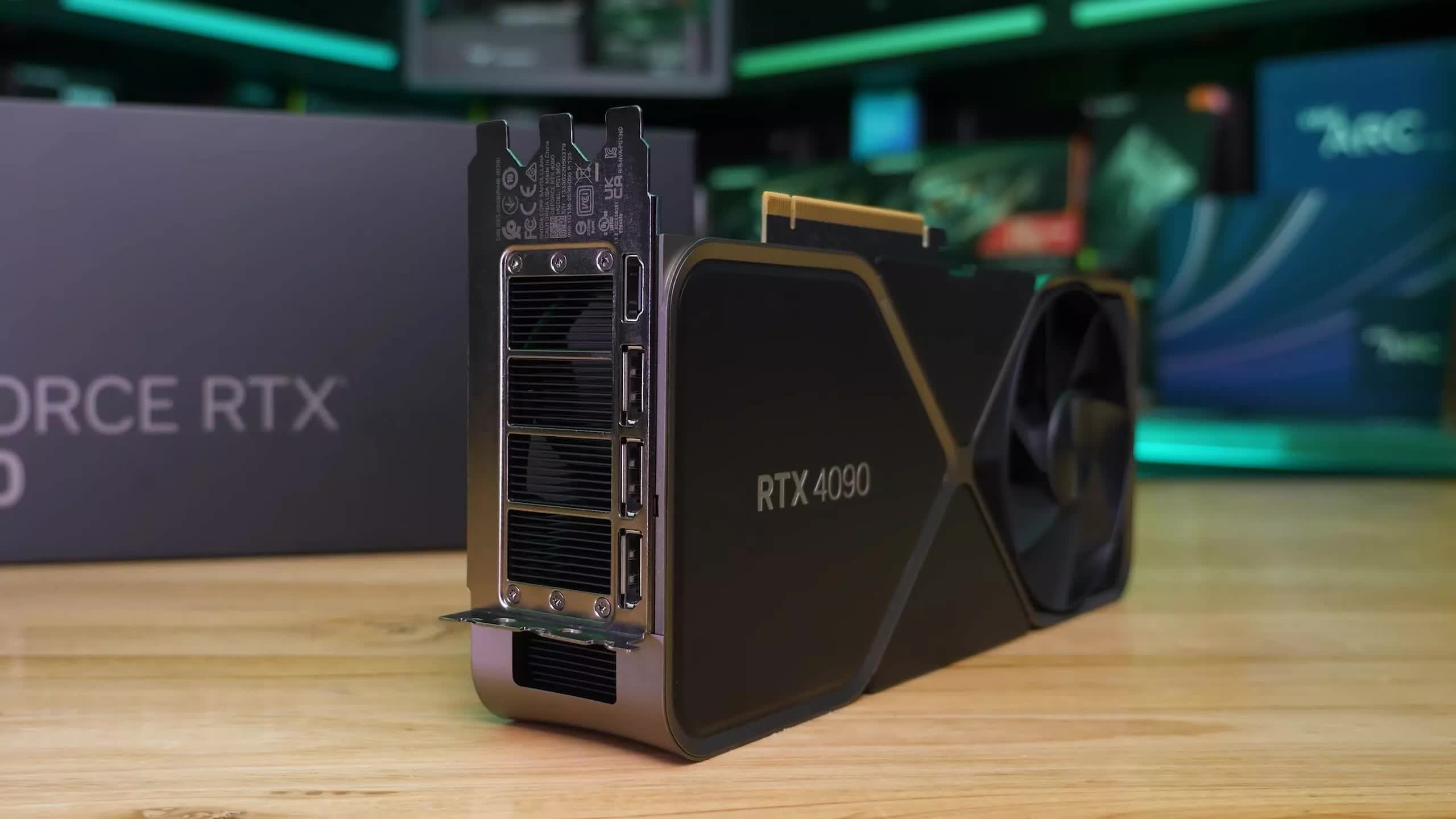Rumor mill: Nvidia unveiled its next-gen Blackwell GPU platform this week at GTC 2024. However, the company said nothing about upcoming consumer GPUs based on the same technology, leaving many gamers fuming at the company's newfound priorities. Thankfully, a noted leaker has filled in some of the gaps with alleged key details about the GB202 GPU that's expected to underpin the flagship Blackwell gaming card, the GeForce RTX 5090.
This latest bit of information comes from tipster @kopite7kimi, who claims that the GB202 GPU will use the same TSMC 4N foundry node as the GB100 designed for AI acceleration and computing applications. He further clarified that, contrary to some reports, the TSMC 4N node is derived from the company's 5nm EUV process, not the 4nm.
In the same update, the tipster also claimed that this new node would offer a 30 percent increase in transistor density compared to TSMC's mainstream 4NP node. The 4NP node itself marked a 6 percent increase in transistor density and a 22 percent enhancement in power efficiency over N5. If these reports are accurate, it suggests that Blackwell utilizes a variant of TSMC's 5nm node, akin to Ada.
GB202 will use the same process node as GB100. I must clarify once again that TSMC 4N(vidia) is based on TSMC 5, not 4nm.
– kopite7kimi (@kopite7kimi) March 19, 2024
I'm sorry I cannot match Jensen's naming with TSMC's naming. We need professional chip analysis to determine.
At least, there is a 30% increase in density.
In a separate, now-deleted post, Kopite also suggested that with Blackwell, Nvidia is enhancing the L1 caches in the streaming multiprocessors, indicating efforts to boost GPU performance at the SM level. According to the post, the flagship GB202 gaming GPU will feature a "significant improvement" in L1 cache size over its predecessors, AD102 and GA102, which both have 128 KB L1 caches.
For now, there is no additional information about the RTX 5090, but recent leaks have already offered a glimpse into its capabilities. An earlier report indicated that the GB202 GPU might come with a 512-bit memory interface, an upgrade from the 384-bit interface of the flagship AD102 Ada GPU. Additionally, the RTX 5090 is rumored to be equipped with 28Gbps GDDR7 memory.
If the recent leaks turn out to be accurate, it could mean the RTX 5090 will be a performance beast, and one that AMD could find hard to beat. These are all unverified rumors, and they should be approached with caution for the time being. Nvidia's GeForce RTX 50 series is only expected to debut in late 2024 or early 2025, leaving room for developments and changes in the interim.
